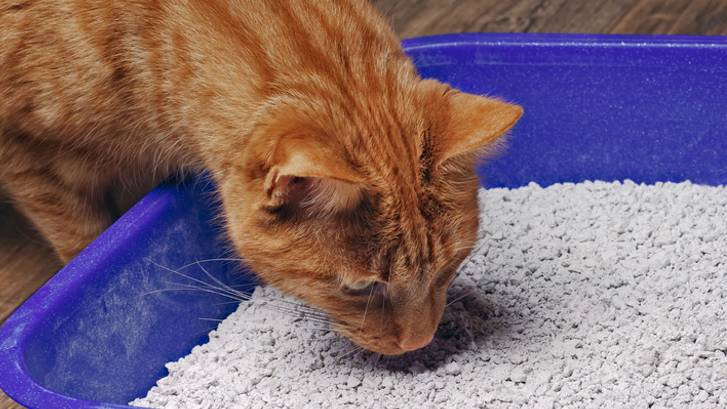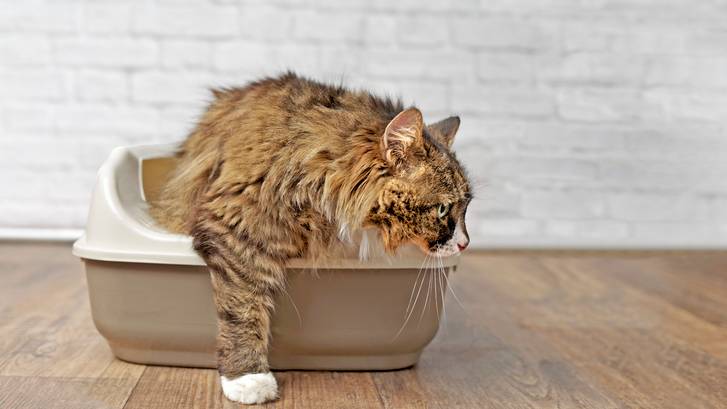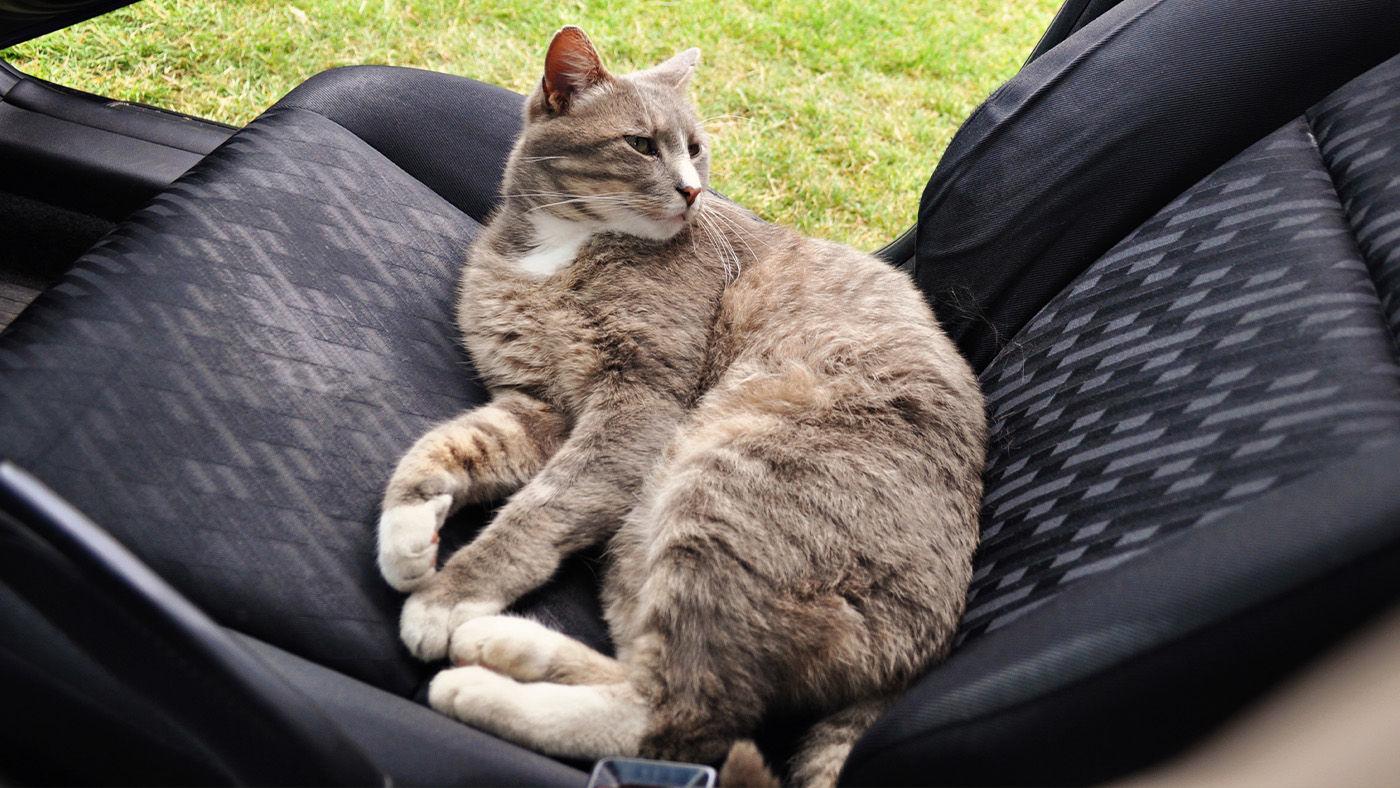Is your cat allergic to litter? A vet's guide to signs and treatment
Wondering ‘is your cat allergic to litter?’. Here’s what a vet had to say, including info on how to diagnose and manage this unusual problem

It’s true, just like humans, cats can develop allergies to several airborne and food allergens — be it pollen, molds or mites – but is your cat allergic to litter?
According to the current train of thought, litter allergies aren’t common, but that doesn’t mean that they can’t occur. In fact, cats can develop allergies to any substance they’ve been repeatedly exposed to, and litter is no different.
Of course, as is the case with any other allergies in cats, an allergy to their litter can be a troublesome problem to navigate. For example, it might leave you wondering: is it really their litter that’s causing the problem? And if so, how would you know? Plus, what should you do?
If you believe your furry friend has a litter allergy, the best thing to do is switch out the current type of cat litter you have been using and swap to a dust-free or low-dust option. We’ve listed a range of hypoallergenic cat litter formulas in our guide to the best cat litter options for every feline. But to understand the components of litter that may trigger allergies in cats and how to help a cat that is allergic to their litter, do keep scrolling.
Can a cat be allergic to cat litter?
Wondering can cats have allergies? Well, while litter allergies are not widely documented in cats, and not much research has been done on this topic, they certainly can occur.
Not only do cats contact litter with their skin, they also tend to inhale dust and other allergens whenever they are in the litter box. These two factors create an environment where litter allergies can develop.
However, there are multiple components of litter that may trigger allergies in cats, including:
In reality, though, there is no single ingredient that is responsible for litter allergies in cats. Dust and fragrances are probably the most common allergens responsible for litter allergies, but any ingredient found in litter can potentially be an allergen for cats with repeated exposure and the right genetic predisposition.
That’s why it’s really worth putting in some time to track down the best cat litter for your feline. Plus, it could be worth investing in one of the best automatic cat litter boxes, which make cleaning up after your cat even easier.

Signs a cat is allergic to their litter
Most cases of cat litter allergies involve airway inflammation. This is especially true in cats that have underlying feline asthma. Many clay litters create dust, especially when a cat is digging in the litter. Once inhaled, this dust can cause significant airway inflammation. Common signs of litter allergies in cats with asthma include coughing, sneezing, and shortness of breath.
While respiratory signs are the most common sign of a litter allergy, skin allergy signs can also occur. Cats with a litter allergy may experience skin inflammation in parts of the body that contact their litter. These signs are often primarily confined to the feet, and may include redness, swelling, and itching.
How to help a cat that is allergic to their litter
If you suspect your cat is allergic to their current litter, your first step should be to change to a litter with less allergy-causing potential. When you make this transition, however, you’ll want to do it gradually, especially if your cat has had any litter box issues in the past.
If you suddenly go through the house and empty all of your cat’s litter boxes to replace them with a new type of litter, you may find out that your cat is no longer willing to use the litter box! Consider mixing the old and new litters for a brief period of time before fully transitioning to your new litter. Watch your cat closely during this time to ensure that they continue to use the litter box normally.
If your cat’s allergy signs are primarily respiratory in nature, you should also look for ways to increase ventilation around the litter box. If you are using a covered litter box, switch to an open litter box that will allow more air circulation.
Ensure that the litter box is located in an area with adequate air flow, so that inhaled allergens aren’t gathering in the litter box. Providing adequate ventilation can help remove allergens from the litter box environment.
When to see the vet
If your cat is showing signs of allergies, including respiratory signs or skin allergies, you should always begin with a visit to your veterinarian. There are a number of other conditions that can easily be confused with litter allergies, so your veterinarian will collect a medical history and perform a thorough physical exam to try to arrive at an accurate diagnosis.
Your veterinarian may recommend additional testing to rule out other medical conditions, such as radiographs of the chest in the case of respiratory signs or skin scrapes (to look for mites) in the case of skin disease.
If your veterinarian determines that your cat is suffering from allergies, they can recommend medications to help treat the signs of allergies and help you identify likely environmental allergens (such as litter). These treatments will help provide your cat with some symptomatic relief, as you make the necessary environmental changes to address your cat’s allergies long-term.

What is the best cat litter for allergic cats?
Cats with allergies typically benefit from litter that is dust-free and fragrance-free. Appropriate litter varieties may include World’s Best Cat Litter, Arm & Hammer Slide Clumping Litter, and Tidy Cats Free & Clean Clumping Cat Litter, among others.
Ultimately, though, selecting the best cat litter may require some degree of trial and error. Once you switch your cat to a new litter, wait a couple of weeks to see if the litter change has had an impact on your cat’s allergy signs. If your cat’s allergies are improving, continue with the new litter long-term and continue to monitor your cat’s signs. If your cat’s allergies are worsening or unimproved, try a different litter type.
Although dust and fragrances are the most likely allergens in litter, it’s possible that your cat is reacting to some other aspect of their litter. You may need to try a variety of litter types in order to find the litter that works best for your cat.
Conclusion
Fortunately, having a cat allergic to litter is a relatively uncommon problem. However, this problem can still be very frustrating for cat owners, as it can significantly affect your cat’s quality of life.
Seek your veterinarian’s opinion and rule out other causes for your cat’s clinical signs. If your vet agrees that your cat is likely experiencing allergies, transition to a dust-free and fragrance-free litter to see if that alleviates your cat’s clinical signs.
Yet to litter box train your cat? Learn how to litter box train an older cat or discover how to keep cat litter off the floor.
PetsRadar Newsletter
Get the best advice, tips and top tech for your beloved Pets
Dr. Barnette is a graduate of the University of Florida, where she received both her B.S. in Zoology and her Doctor of Veterinary Medicine (DVM). She has 15 years of clinical experience as a small animal veterinarian, treating dogs, cats, and occasional exotic patients. She now works as a freelance veterinary writer, creating educational content for veterinarians, veterinary team members, and dedicated pet owners. Dr. Barnette lives in southwest Florida with her husband and daughter (plus two cats, a dog, and a rescued dove!) and enjoys kayaking, biking, and hiking. Learn more about Dr. Barnette at www.linkedin.com/in/catherinebarnette.
- Becks ShepherdFreelance Journalist

